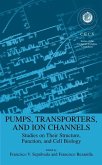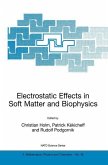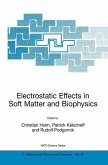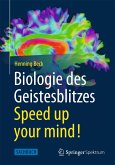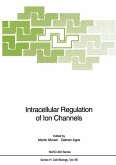The goal of this book is to explore the complexity of a microscopic bit of matter that exists in a myriad of copies within our bodies, the voltage-sensitive ion channel. We seek to investigate the way in which these macromolecules make it possible for the long fibers of our nerve and muscle cells to conduct impulses. These integral components of cell membranes are marvels of nature's evolutionary adaptation. To understand them we must probe the boundaries of physics and chemistry. Since function is intimately related to structure, we examine the molecular structure of channels, focusing on physical principles that govern all matter. With the application of genetic methods, our knowledge of ion channels has broadened and deepened. In the hope that research can help ameliorate suffering, we discuss the diseases that arise from channel malfunctions due to genetic mutations. This book is intended for students and scientists who are willing to travel into uncharted waters of an interdisciplinary science. We approach the subject of volta- sensitive ion channels from various points of view. This book seeks to give voice to the viewpoints of the physical and the biological scientist, and to bridge gaps in terminology and background. Readers may find this book to have both elementary and advanced aspects: For the reader trained in the biological sciences, it reviews background in physics and chemistry; for the reader trained in the physical sciences, it reviews background in physiology and biochemistry.
From the reviews:
"...this well-written and thoroughly researched book is Dr. Leuchtag's crowning achievement as it presents ion channel structure and function painted on a broad canvass of biological, physical and mathematical backdrop that is needed to properly understand these small yet hugely important biological switches."
Prof. Jack Tuszynski: Allard Research Chair Division of Experimental Oncology, Room 3336, Cross Cancer Institute, 11560 University Avenue, Edmonton, AB T6G 1Z2 Canada
"... This book is an impressive sum of more than 500 pages dealing with conventional as well as unconventional views on excitability and channels with some historic remainders on animal electricity and general considerations on 'information in the living body' including primitive forms such as bacteria swimming... Professor Leuchtag's book is well written, easy to read, despite necessary theoretical disgressions, resulting in a real interdisciplinary account (even sometimes thought-provoking) of what is presently known about voltage-sensitive ion channels and molecular excitability."
Hervé Duclohier is in the Physiopathology and Pharmacology of Ion Channels Group, UMR 6187-Université de Poitiers, 40 Avenue du Recteur Pineau, 86022 POITIERS (France). E-mail : Herve.Duclohier@univ-poitiers.fr
"... Voltage-sensitive ion channels are macromolecules embedded in the membranes of nerve and muscle fibers of animals. Because of their physiological functions, biochemical structures and electrical switching properties, they are at an intersection of biology, chemistry and physics... The book is very well referenced...and is a challenge for physicists and biologists alike...Experts in both fields, as well as young graduates will certainly benefit from the vast amount of information collected; moreover, they may be motivated for an exciting journey to living matter from aphysical perspective."
Alexander G. Petrov, PhD, DSc, FBAS, Director, Institute of Solid State Physics, Bulgarian Academy of Sciences, Sofia
"...this well-written and thoroughly researched book is Dr. Leuchtag's crowning achievement as it presents ion channel structure and function painted on a broad canvass of biological, physical and mathematical backdrop that is needed to properly understand these small yet hugely important biological switches."
Prof. Jack Tuszynski: Allard Research Chair Division of Experimental Oncology, Room 3336, Cross Cancer Institute, 11560 University Avenue, Edmonton, AB T6G 1Z2 Canada
"... This book is an impressive sum of more than 500 pages dealing with conventional as well as unconventional views on excitability and channels with some historic remainders on animal electricity and general considerations on 'information in the living body' including primitive forms such as bacteria swimming... Professor Leuchtag's book is well written, easy to read, despite necessary theoretical disgressions, resulting in a real interdisciplinary account (even sometimes thought-provoking) of what is presently known about voltage-sensitive ion channels and molecular excitability."
Hervé Duclohier is in the Physiopathology and Pharmacology of Ion Channels Group, UMR 6187-Université de Poitiers, 40 Avenue du Recteur Pineau, 86022 POITIERS (France). E-mail : Herve.Duclohier@univ-poitiers.fr
"... Voltage-sensitive ion channels are macromolecules embedded in the membranes of nerve and muscle fibers of animals. Because of their physiological functions, biochemical structures and electrical switching properties, they are at an intersection of biology, chemistry and physics... The book is very well referenced...and is a challenge for physicists and biologists alike...Experts in both fields, as well as young graduates will certainly benefit from the vast amount of information collected; moreover, they may be motivated for an exciting journey to living matter from aphysical perspective."
Alexander G. Petrov, PhD, DSc, FBAS, Director, Institute of Solid State Physics, Bulgarian Academy of Sciences, Sofia



